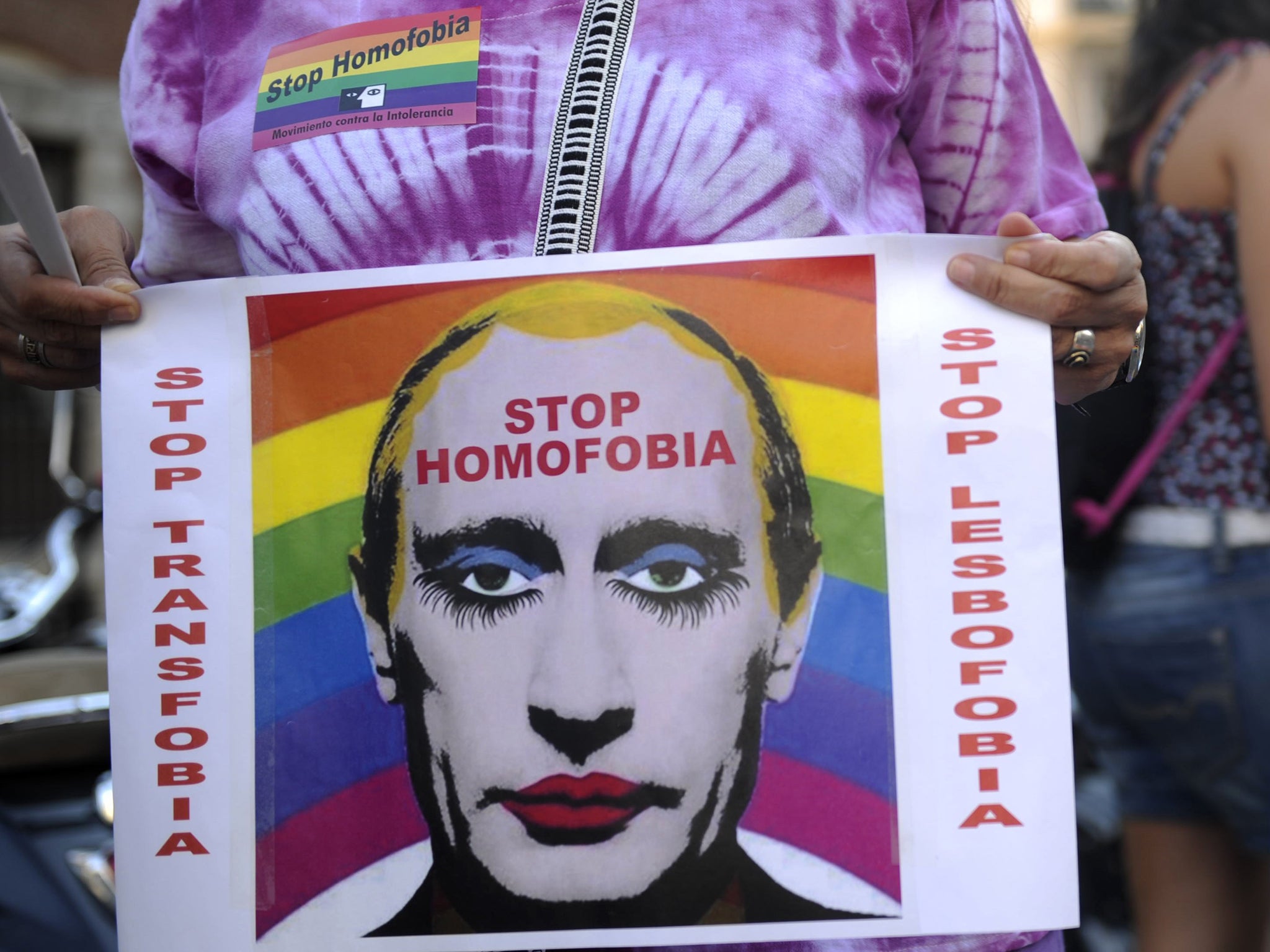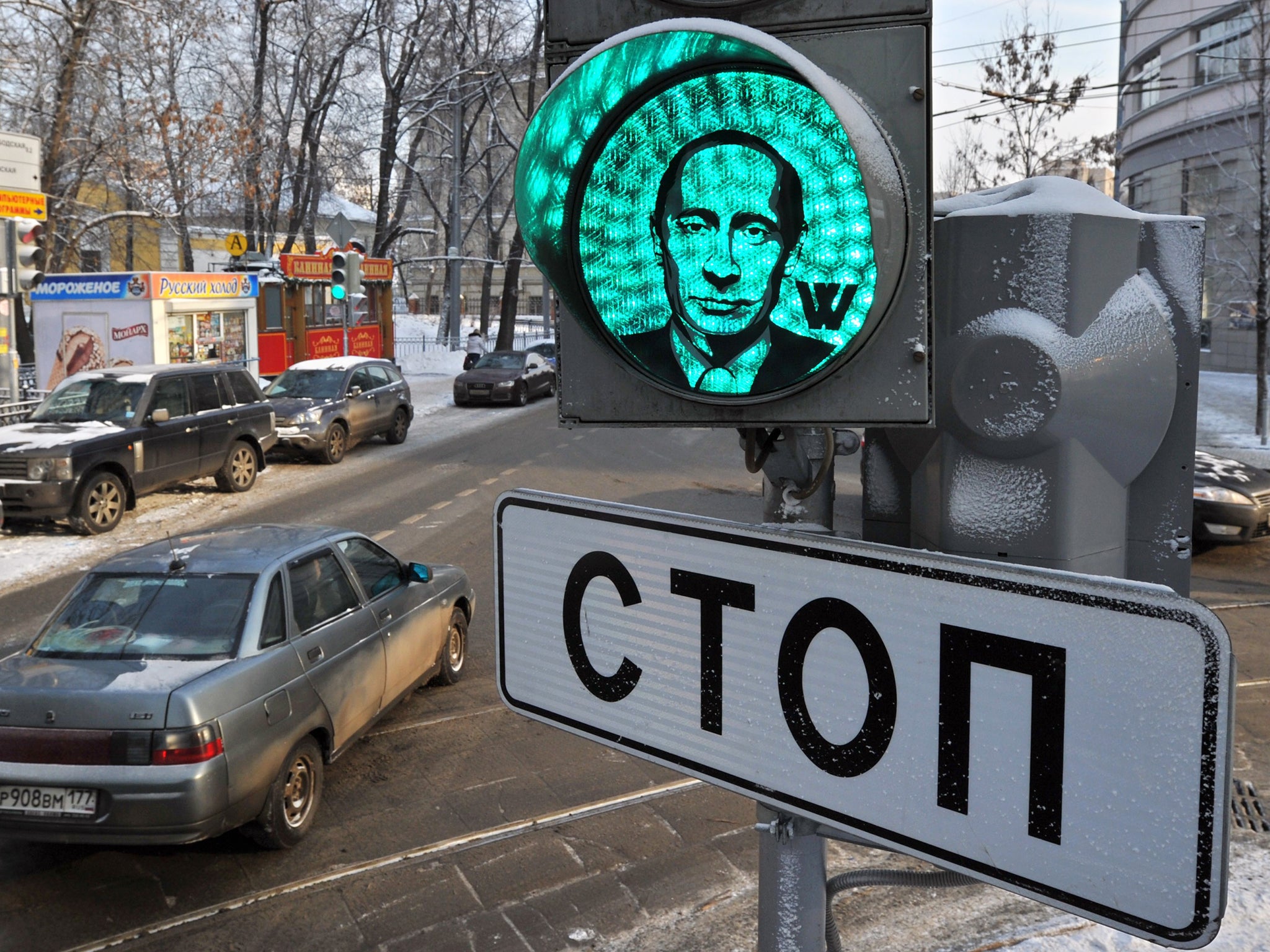Now Russia makes transgender driving a criminal offence
Latest law prevents people with 'mental disorders' such as transsexualism and fetishism from holding driving licences

Your support helps us to tell the story
From reproductive rights to climate change to Big Tech, The Independent is on the ground when the story is developing. Whether it's investigating the financials of Elon Musk's pro-Trump PAC or producing our latest documentary, 'The A Word', which shines a light on the American women fighting for reproductive rights, we know how important it is to parse out the facts from the messaging.
At such a critical moment in US history, we need reporters on the ground. Your donation allows us to keep sending journalists to speak to both sides of the story.
The Independent is trusted by Americans across the entire political spectrum. And unlike many other quality news outlets, we choose not to lock Americans out of our reporting and analysis with paywalls. We believe quality journalism should be available to everyone, paid for by those who can afford it.
Your support makes all the difference.Russia’s notorious roads, where crashes are frequent and payments to corrupt transport police can seldom be avoided, will not have to deal with what the Kremlin views as a new and “dangerous” threat: transgender and transsexual drivers.
In another sign of Moscow’s intolerance of the LGBT community, the government has launched the ban that will, apparently, reduce road traffic accidents. For in Russia, transsexualism and transgenderism are now listed along with fetishism and voyeurism as examples of “mental disorders” that can make someone “unfit” to drive.
The new road safety rules, signed by the Prime Minister, Dmitry Medvedev, have been published on the government’s official website. The government says the number of road accidents in the country justifies tightening medical controls on drivers, but fails to show how sexual orientation is connected to driving ability.
“Psychiatric disorders” including schizophrenia and drug addiction are also included in the new ban, prompting medical experts to warn that those suffering from mental health issues may be discouraged from seeking help for fear of being banned from driving.
Human rights and gay rights activists were swift to condemn the legislation. The Association of Russian Lawyers for Human Rights called it “discriminatory”.
A statement on the group’s website said the decision would “cause serious violations of human rights” and demonstrated “prejudice against groups of citizens”.
It said: “The decision demonstrates the invasion of the privacy of each person who plans to drive a vehicle… The resolution discriminates [against] individuals and groups of citizens [which] obviously contradicts the international legal norms and standards and the Constitution of the Russian Federation.”
The organisation suggested the new law would lead to a “new growth in corruption” and said it would present its complaints to the Presidential Council on Human Rights, the Constitutional Court of the Russian Federation and international organisations.

Mr Medvedev’s decision will do little to improve Russia’s poor record on LGBT rights. Despite the relaxation of some anti-gay laws after the fall of the Soviet Union in 1991, the Russian government has continued to pass restrictive laws such as the curbs on Gay Pride parades.
In 2013, the controversial “gay propaganda” law banning the “promotion of non-traditional sexual relations” was passed, enforcing fines of up to 5,000 roubles (£53) for anyone caught “propagandising” homosexuality to anyone aged 18 or under. Its implementation a year before Sochi Winter Olympics of 2014 led to widespread calls from LGBT-rights activists and world leaders for the games to be boycotted.
The editor of PinkNews, Joseph Patrick McCormick, said: “It is clear from this move by the Russian government that regulations are being exploited in an effort to crack down on minority groups. It is unclear what being transgender has to do with a person’s ability to drive, so banning trans people from driving seems a bizarre and irrational move.”
But the head of the Russian Professional Drivers Union, Alexander Kotov, defended the government’s decision. He said: “We have too many deaths on the road, and I believe toughening medical requirements for applicants is fully justified.” However, he added that only professional drivers should be subject to such strict rules.
The law makes reference to “personality and behavioural disorders” listed in the World Health’s Organisation’s (WHO) International Classification of Diseases (ICD). Under the WHO categorisations, people with gambling addictions could potentially also be prevented from driving.
A WHO spokesman said: “The issue of whether to move the ‘transsexualism’ category from the ICD chapter on mental and behavioural disorders is being examined as part of the ongoing process.”
Join our commenting forum
Join thought-provoking conversations, follow other Independent readers and see their replies
Comments